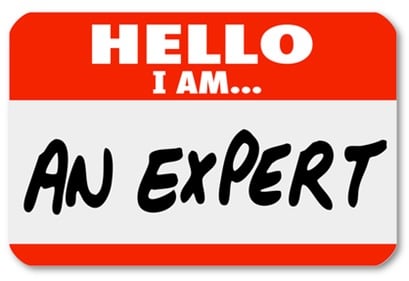We Are Such Experts….
 I’ve just arrived home from an annual trip taken with three of my best mates who I’ve known since school. Each year, we attend a day of test cricket, something that we all enjoy and look forward to. Not only is it good to spend time with friends, it’s great to watch a sport that we all enjoy.
I’ve just arrived home from an annual trip taken with three of my best mates who I’ve known since school. Each year, we attend a day of test cricket, something that we all enjoy and look forward to. Not only is it good to spend time with friends, it’s great to watch a sport that we all enjoy.
A day at the cricket for four mates who have known each other for over 30 years and with many of those either playing or watching cricket together, also sets the scene for us to provide commentary, views and analysis as we watch the game. I suspect if you were a ‘fly on the wall’ listening to our conversations throughout the day, you might be fooled into thinking that we were ‘experts’.
Here are a few quotes that I can remember from our ‘day at the cricket’:
“What was he thinking, that’s such a silly mistake.”
“You’d think he would know better playing at this level”
“I just don’t understand why he would do it like that, it makes no sense to me”
“He should just do what he did last game, he’s been on a real roll over the past year”
“I just knew that was going to happen”
Do any of these comments sound similar to what people working in an industry that you and I know, might say?
When we take on the role of expert, whether in our analysis of sport or in risk and safety, the danger is that we see people as ‘problems to be fixed’, rather than ‘people to be met‘. We did a lot of fixing in just one day!
When my mates and I get together to watch sport, it’s easy to become ‘expert’. It’s quite amusing actually when I reflect on some of the Blogs that I’ve written over the past couple of years. There is definitely no immunity to the temptation of being an ‘expert’, just because I’ve increased my knowledge!
This of course doesn’t mean that my mates and I are going to stop our ‘armchair’ commentary when we sit down and watch sport together. It’s fun and it’s part of ‘what we do’. Our commentary and ‘expert’ views aren’t likely to influence anyone that really matters.
However, my mates and I are not alone in moving to become ‘expert’. So what are some other examples?
Sports commentators world over are classic examples of being ‘experts’ in others. For instance, in cricket, the Channel Nine Commentary Team has become legendary in Australia. What is obvious to me know is how their comments are filled with hindsight bias, confirmation bias and availability bias.
Listening to their commentary, there is much talk of ‘mistakes’, ‘errors’ and ‘failure’, or at the other end of ‘legends’, ‘greatness’ and ‘heroes’. It seems like every sportsperson must perform perfectly during every game or if they don’t, there are any number of experts prepared to offer answers and solutions.
Sound familiar at all?
I guess we all can be experts from time to time, it’s hard to resist the temptation of providing views on how others can do things better or different.
Can you think of an example of when you have become an expert in someone?
With so much discussion about ‘expert’, I thought it would be useful to examine just what an expert is and what someone needs to do to be considered an ‘expert’.
Malcolm Gladwell in his book Outliers provides a useful definition with his ‘10,000 Hour Rule’. Simply put, Gladwell proposes that to be considered ‘expert’ in anything, one must have practiced that skill or activity for at least 10,000 hours. While not getting caught up in the specific numbers (i.e. I don’t propose that 10,000 hours should be captured in a log book as we are prone to do in risk and safety), I think Gladwell has probably got this right.
This go me thinking of some questions about being ‘expert’ in risk and safety?
· I wonder what makes one an expert in risk and safety? What do we spend 10,000 hours doing?
· If we study in risk and safety, what could that make us ‘expert’ in? Is it law? Is it process? Is it machines and/or engineering?
· If we do spend so much time being ‘experts’ in ‘objects’, what does this mean for our understanding of people?
· When we do think that we are an ‘expert’, how much of this is really just about ‘hindsight bias’, ‘confirmation bias’, ‘availability bias’ and ‘representative bias’? We are all bias and that’s ok…
Are you easily tempted into ‘expert’ mode? What are you ‘expert’ (10,000 hours) in? What do you do to deal with the seduction of being an ‘expert’? How do you feel if someone becomes an ‘expert’ in you?
We can all be such experts at times.
We’d love to hear your thoughts, experiences and comments.
Author: Robert Sams
Phone: 0424 037 112
Email: robert@dolphyn.com.au
Web: www.dolphyn.com.au
Facebook: Follow Dolphyn on Facebook



Do you have any thoughts? Please share them below